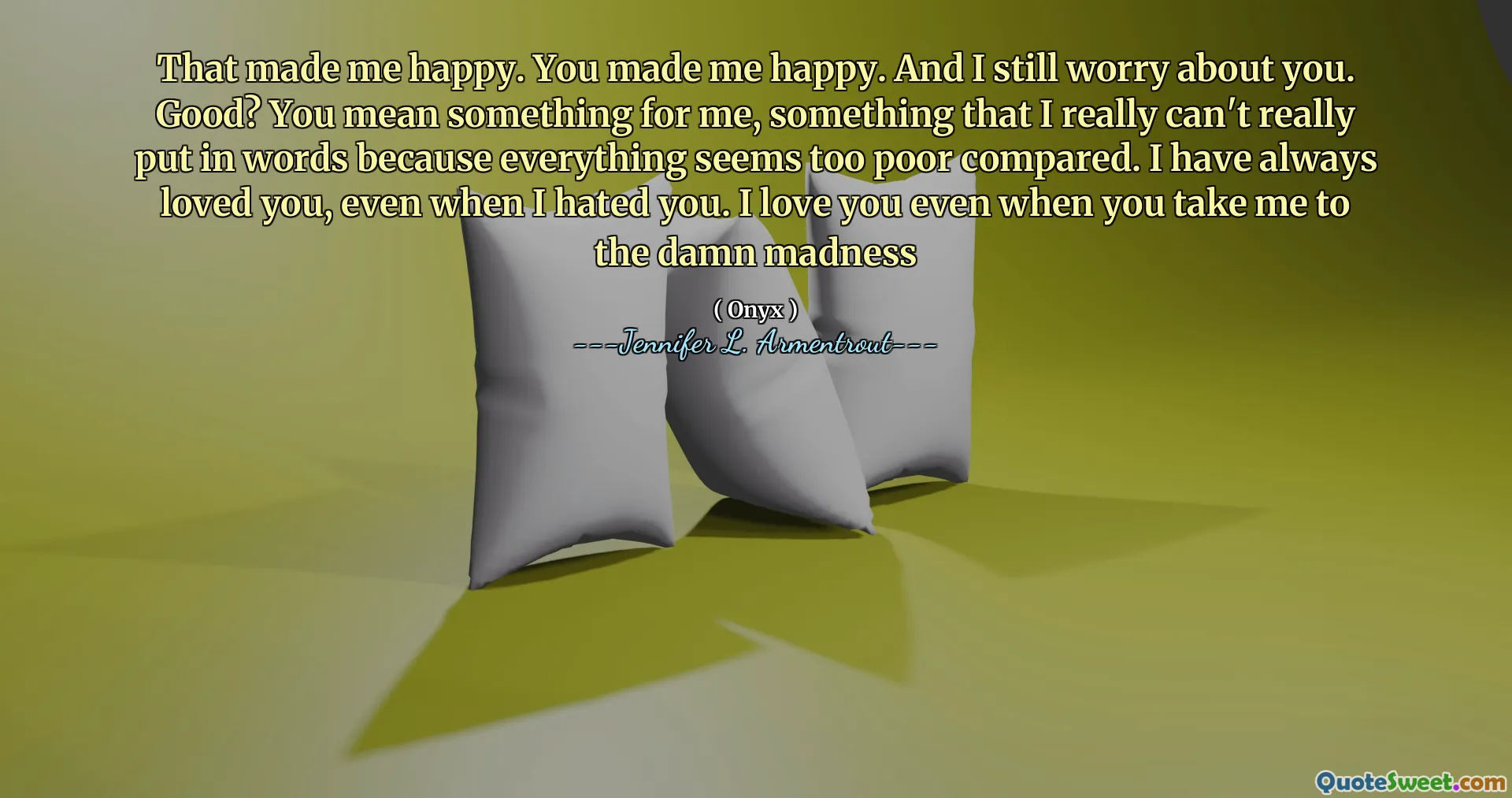
That made me happy. You made me happy. And I still worry about you. Good? You mean something for me, something that I really can't really put in words because everything seems too poor compared. I have always loved you, even when I hated you. I love you even when you take me to the damn madness
The quoted text expresses a deep and complex emotion between two people. The speaker acknowledges that the other person has brought them joy and happiness, despite the challenges and madness that their relationship may entail. There’s a strong sense of caring and concern, indicated by the speaker's worries for the other person’s well-being.
The speaker reflects on their enduring love, which persists even during difficult times when feelings of hatred may surface. This duality of love and frustration highlights the intense bond they share, suggesting that their connection is profound and multifaceted. The struggle to articulate their feelings hints at the intensity of their emotions and the importance of their relationship.











